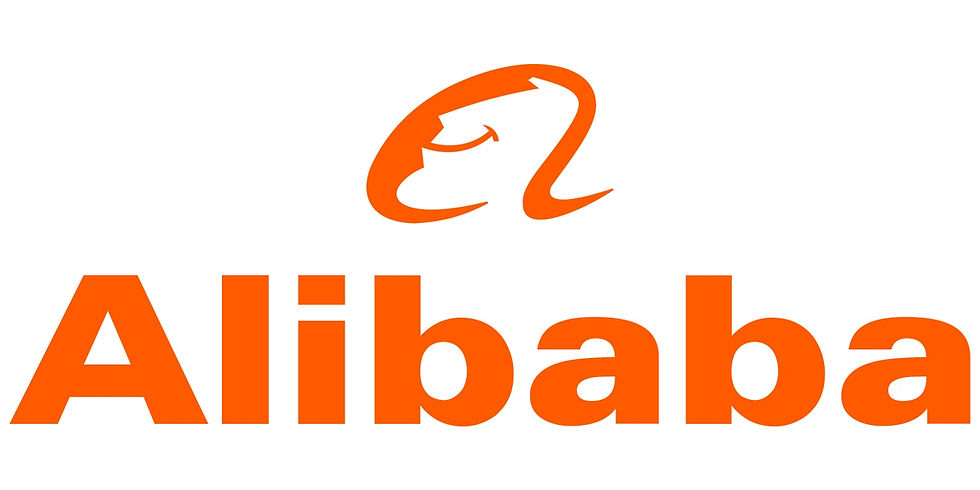China Digital Digest Weekly: Exploring the Chinese Digital Landscape
- ClickInsights

- Jan 11, 2023
- 4 min read
Hi folks, we are back with our weekly edition of China’s Digital Digest, wherein we would bring you weekly updates on China’s digital space. The report takes a quick glance at China’s complex and rapidly evolving social media landscape by providing updates on the latest happenings across the social media industry. Here are the major highlights of the report.
1. ByteDance Cuts Hundreds of Jobs in China
ByteDance laid off hundreds of employees across multiple departments at the end of 2022 as part of the company’s efforts to streamline operations, according to two people familiar with the matter.

The move has affected employees at Douyin, the Chinese version of TikTok with 600 million daily active users, as well as its gaming and real estate operations, said the sources, who declined to be named as they are not authorized to speak to the media.
2. Tencent Doubles Down on WeChat Live Streaming to Take on TikTok in 2023
Tencent Holdings is doubling down on its WeChat live-streaming services to take on TikTok and its China cousin Douyin, after the internet giant reported a fourfold increase in its livestreaming user base and growth of more than 800 percent in live streaming e-commerce gross merchandise value (GMV) in 2022.

Tencent, which has been reducing its investment portfolio and laying off workers in the face of market headwinds, will provide more incentives for influencers and merchants to use its short video and live-streaming service in 2023, according to company executives speaking at the annual conference of WeChat, known as Weixin in Chinese.
3. Sony Gets Banned from Posting on China’s Weibo After Angering Patriots
A Chinese social media account of Sony Group has been banned from publishing new posts indefinitely over “violations of relevant laws and regulations”, marking the latest setback for the Japanese electronics conglomerate on the mainland.

The official account of Sony China on microblogging platform Weibo has been forbidden from blogging and sending direct messages to other users since Wednesday, according to a tag on its main page. Old posts are still visible.
4. Hangzhou Government Pledges Unswerving Support for Alibaba to Develop Economy
The municipal government of Hangzhou, where Alibaba Group Holding is based, has signed an agreement to deepen “strategic cooperation” with the e-commerce giant, praising it for helping the local economy and pledging unswerving support for its development.

Liu Jie, the communist party chief of Hangzhou, said during the signing ceremony that Alibaba has made an “irreplaceable” contribution to the city’s economic and social development, and that the municipal government would maintain close contact with Alibaba in a comprehensive and all-weather manner, according to a statement from the government of Hangzhou.
5. Tencent-Backed Healthtech Firm May File for IPO by April
WeDoctor, a China-based healthtech firm, is looking to file for an IPO by the end of April through a listing in the US or Hong Kong.

The Tencent-backed company, which could go public in the second half of the year, tried to list its shares in Hong Kong in 2021. However, the application lapsed due to China’s strict regulatory crackdown on private companies, including those that handle sensitive data such as medical information.
6. Online Chinese Discount Retailer Explores New Territory in Southeast Asia
Vipshop, a Chinese e-commerce website specializing in online discount sales, officially unveiled its market expansion plan into Southeast Asia with its registered headquarters based in Singapore and has already debuted its website and mobile app online.

The leading online e-retailer partners with more than 2,000 international buyers as well as 20,000 brands, offering a wide array of products ranging from makeup goods to homeware items and fashion apparel.
7. Chanel Becomes the Most Active Luxury Brand on WeChat
Since 2022, Chanel, the French luxury fashion house, owns the highest overall viewings amongst 6 high-end brands including Fendi, Prada, Burberry, and Louis Vuitton, on its Service Account on WeChat, China’s instant messaging app owned by Tencent.

In comparison to the 6 other mega-brands, Chanel also posted the most articles with a total of 72 and views ranging between 5,000 to 100,000. While Louis Vuitton scheduled the least amount of content which accounted for only half of Chanel’s, and each piece being read by over 100,000 followers.
8. Moutai Kicks Off App Game Making a Foray Into Metaverse
China’s liquor giant Moutai’s foray into the Metaverse began with an app game that was jointly developed with the country’s technology company NetEase, allowing users to fully embrace the joy of making their own liquor in the virtual world.

Soon after its release on 1 January, the app already topped the iOS free apps chart and garnered more than 1 million registered users within 3 days. According to the official statement of Moutai, applying the Metaverse concept to the game aims at building up an online community in support of the multi-user interaction feature, while more visual elements and various game environments are coming soon.
9. Xiaomi Founder Lei Jun Steps Down From Roles at Three Affiliated Firms
Xiaomi founder Lei Jun has recently withdrawn from three affiliated companies, including Xiaomi Software Technology Co., Ltd., Xiaomi Pictures Co., Ltd. and Beijing Tianmi Technology Co., Ltd. He previously served as the chairman of the former two firms and the director of the last one.

Xiaomi Software Technology Co., Ltd. was established in December 2011 with registered capital of $3 million, and its business scope includes research and development of computer software and information technology, technical consultation, technical services, among other areas.
Wrapping Up
The vast and diverse nature of the Chinese Social Media space makes it incredibly challenging to keep a tab on the rapid developments taking place. However, China’s Digital Digest brings you all the latest updates from there to keep you abreast of all the evolving trends.
To delve deeper into the findings of the December report, click here.



google 优化 seo技术+jingcheng-seo.com+秒收录;
Fortune Tiger Fortune Tiger;
Fortune Tiger Fortune Tiger;
Fortune Tiger Fortune Tiger;
Fortune Tiger Slots Fortune…
站群/ 站群
gamesimes gamesimes;
03topgame 03topgame
EPS Machine EPS Cutting…
EPS Machine EPS and…
EPP Machine EPP Shape…
Fortune Tiger Fortune Tiger;
EPS Machine EPS and…
betwin betwin;
777 777;
slots slots;
Fortune Tiger Fortune Tiger;